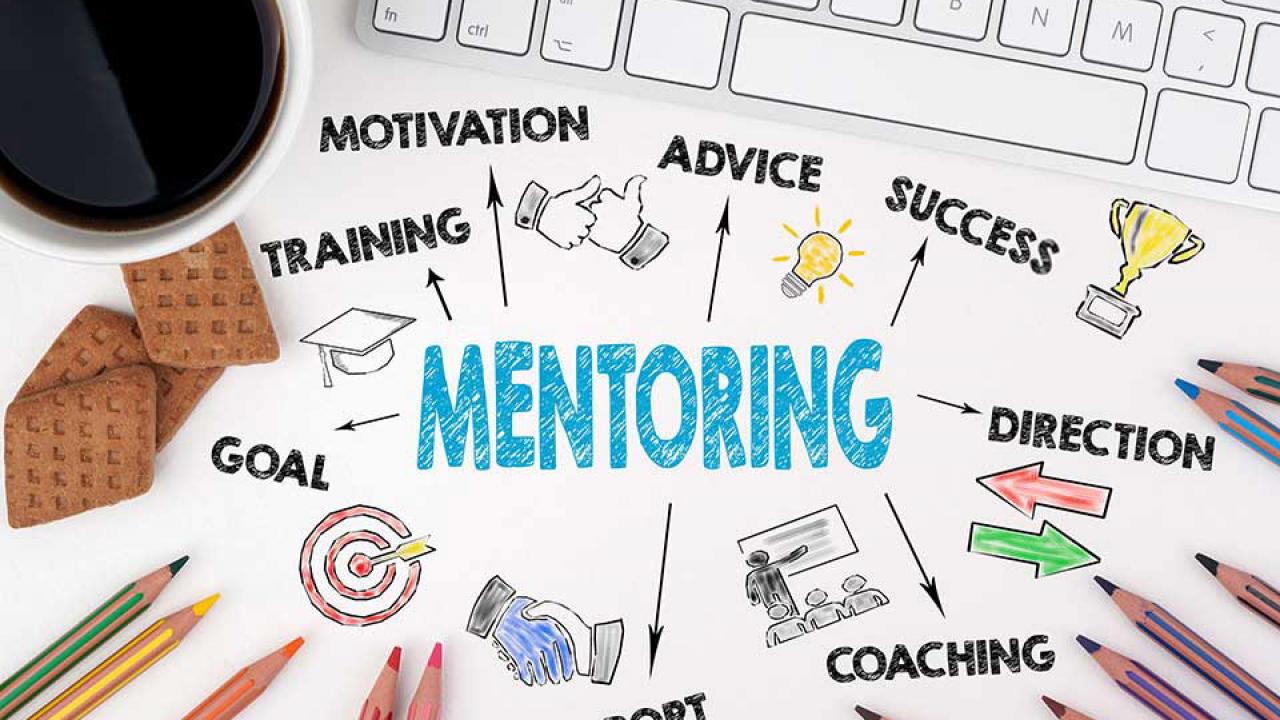
Five Truths and Lies about Mentors
By Linda Katehi
1. We only need one mentor.
The idea that we need only one mentor is wrong. In reality,  we need more than one. Your mentors should be individuals who see your success as theirs. Our lives are very complex and our needs are complicated. We need people with a plethora of experiences who can give us guidance or advice about various aspects of our life. For example, we need advice related to our work, our behavior and relation with other colleagues, advice about raising a young family or creating a stable relationship with our partner. You cannot expect the same person to be able to provide all of that. Feel comfortable having many mentors.
we need more than one. Your mentors should be individuals who see your success as theirs. Our lives are very complex and our needs are complicated. We need people with a plethora of experiences who can give us guidance or advice about various aspects of our life. For example, we need advice related to our work, our behavior and relation with other colleagues, advice about raising a young family or creating a stable relationship with our partner. You cannot expect the same person to be able to provide all of that. Feel comfortable having many mentors.
2. Your mentor needs to have the same education, training or life experiences as you.
Wrong. Your mentors do not need to have the same education or training as you and should not necessarily understand your professional environment or have experienced challenges similar to yours. Most of the time a good mentor will not give you an answer to your problem. Instead, they will help you identify the right solution on your own. The two most important characteristics of a mentor are their interest in listening to you carefully and their ability to assess your capabilities. Beyond that, a mentor needs nothing more.
3. It is very difficult to find a mentor.
Wrong. Almost everyone will be delighted to lend a hand to those who need it. Finding a mentor is easy. You have to be strategic in what you want from your mentors. Identify the people you respect their experience, work, and contributions. When you do that, try to introduce yourself to them directly or through others. When you introduce yourself to a potential mentor, explain how you identified them and why you want their advice. If you respect them for their work, your admiration will make it easier to explain why you would like to speak with them. If your prospective mentor shows interest in speaking with you, leave it up to this person to decide when and how they will interact with you. Personally, I always prefer a more informal meeting when it comes to mentoring, but this is not true for everyone.
hand to those who need it. Finding a mentor is easy. You have to be strategic in what you want from your mentors. Identify the people you respect their experience, work, and contributions. When you do that, try to introduce yourself to them directly or through others. When you introduce yourself to a potential mentor, explain how you identified them and why you want their advice. If you respect them for their work, your admiration will make it easier to explain why you would like to speak with them. If your prospective mentor shows interest in speaking with you, leave it up to this person to decide when and how they will interact with you. Personally, I always prefer a more informal meeting when it comes to mentoring, but this is not true for everyone.
4. It is easy to lose a mentor.
Right. Keeping a mentor connected with you requires work on your part. It requires sensitivity and a sense of responsibility on your side. You expect your mentor to listen to you and eventually help you find answers to your questions. What is your mentor looking to receive in return? Is knowing that you have done something with their help enough? Keep your mentors connected and show to them that you care. An email once in a while to see how they are doing, without being followed by a specific request will help you in keeping them interested in your well-being and making them your lifelong friend.
5. It is a personal failure to lose a mentor.
Wrong. Mentors are people too.  They have their own careers, families and personal challenges. It is possible that your ideal mentor will not be able to respond to your call for help for many reasons. They may think that they will not have the time to effectively respond to your needs and that there are other individuals who may be more effective than themselves. They may also be dealing with a personal emergency or challenge that may not provide them with the state of mind needed to help you. A mentor who finds her/himself in this position will bring you in contact with another excellent individual and they will explain why.
They have their own careers, families and personal challenges. It is possible that your ideal mentor will not be able to respond to your call for help for many reasons. They may think that they will not have the time to effectively respond to your needs and that there are other individuals who may be more effective than themselves. They may also be dealing with a personal emergency or challenge that may not provide them with the state of mind needed to help you. A mentor who finds her/himself in this position will bring you in contact with another excellent individual and they will explain why.
If a mentor ignores your call for help or refuses the opportunity to help you with a response that you find rude or insensitive, be happy. She or he was not the right people to mentor you.
--------------
The Blog has an Editorial Board responsible for the quality of information and content development.
